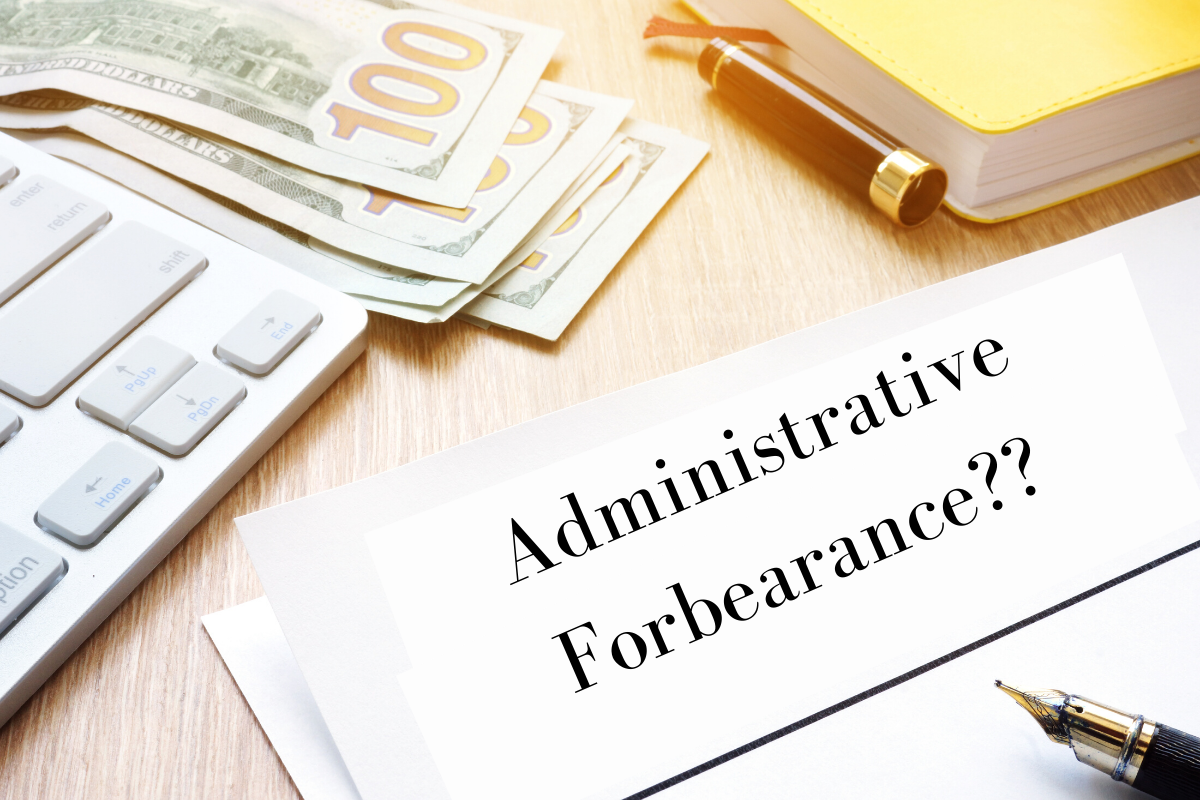Managing Student Loans in Administrative Forbearance
Student Loan Forbearance has been a hot topic for everyone with student loan debt. Most everyone is wondering if they should you resume making payments – or use the money in other ways.
We walk you through the details and help you make a plan that accomplishes your goals.
If you have Federal Student loans you have likely already heard about the details surrounding administrative forbearance. But with so much happening at once many feel overwhelmed and not sure about the best way to proceed now that a little time has passed.
To help you make sense of it all here are the quick facts and important details followed by our advice on managing your money and your loans.
STUDENT LOAN FORBEARANCE – QUICK FACTS
Applies to Federal Student Loans Only
Most, but not all, student loans are owned by the Department of Education and therefore do not qualify for this provision of the CARES Act. If you are unsure if you have federal or private loans or if a loan qualifies, call your loan servicer to clarify and find out what options are available to you.
Payments are suspended until September 30th
Plain and simple – Administrative forbearance has suspended payments to federal student loans. Unless you request to reinstate your payments or further legislation is passed, your payments will remain paused until September 30, 2020.
Your accounts will not become delinquent, your credit will not be harmed and you can expect correspondence from your loan servicer in August about the automatic reinstatement of your payments in September.
0% Interest
Exactly like the suspended payments, the administrative forbearance will last until September 30, 2020. That is almost 7 total months without interest.
It was Automatic – No application required
At first the administrative forbearance for federal student loans was going to be something that you requested. However shortly afterwards, I am assuming that someone realized the phone lines would be an absolute mess and no one needed all that extra chaos. So instead, they opted for an automatic enrollment.
THINGS TO CONSIDER
This is an opportunity.
If you can afford to continue your payments as you would normally, we encourage you to do so. Being able to make regular payments to your student loans without the burden of interest is an opportunity to build some extra momentum. This would require contacting your loan servicer and having them take your loans out of administrative forbearance to reinstate regular payments.
If you cannot afford to maintain payments, this is still an opportunity. The money you get to keep each month needs to have a purpose and to be working for you. The best way to do that is with a budget and with overall financial wellness in mind.
This is not a windfall.
The money that is no longer going to pay your student loans is not an unexpected bonus to be used frivolously. As mentioned above it needs to have a purpose and it needs to be helping you move forward.
If you decide to keep your payments paused, use the money to pay for necessities like housing, food and essential transportation. Still have money left over? Put it toward an Emergency Fund of 3-6 months living expenses.
When deciding what to do, consider your goals.
If you have the goal of getting out of student loan debt sooner than later, be sure that you are looking at your overall financial plan and staying on track as much as possible. When possible, it is important not to let the impact of current events completely derail you. But there is a lot to be considered. For instance:
If your income has not been disrupted and you have a 3-6 month Emergency Fund, you should strongly consider reinstating your payments. However, if you have seen a disruption in your income or do not have an Emergency Fund saved, consider staying focused on those crucial steps in your financial strategy.
FINAL THOUGHTS
If we have learned anything about this crisis it is that student loan forgiveness is highly unlikely. I mean if not now, then…? So whether you can or cannot prioritize this right now, we believe everyone with student loan debt needs to have a plan of paying it off as soon as possible.
With that said, if you have a steady income and a 3-6 month Emergency Fund you could go big in a few ways:
Option 1: Invest in yourself by working with a financial coach who can help you build a get out of debt plan with confidence, reduce your stress and gain peace of mind.
Option 2: Ramp up your Snowball or find the best way for you to get out of debt! Every dollar you put toward your debt over the next few months will go directly toward principal. So if you can pay even more than your regular payment – WOW! Your debt snowball just picked up a whole lot of speed!
Option 3: Invest in your future. The opportunity for growth by investing in your retirement is still massive. Rather than extra money at student loans, talk to a financial coach or advisor about investing in your retirement.
Whatever approach you take, be sure to make the most of student loan forbearance. As we’ve laid out with 0% interest and paused payments this is a massive opportunity to reallocate how you’ve been using your money to make progress and improve your financial health.
Thoughts, questions, comments? We want to hear from you! Comment below or send us a message info@radcoaches.com







0 Comments